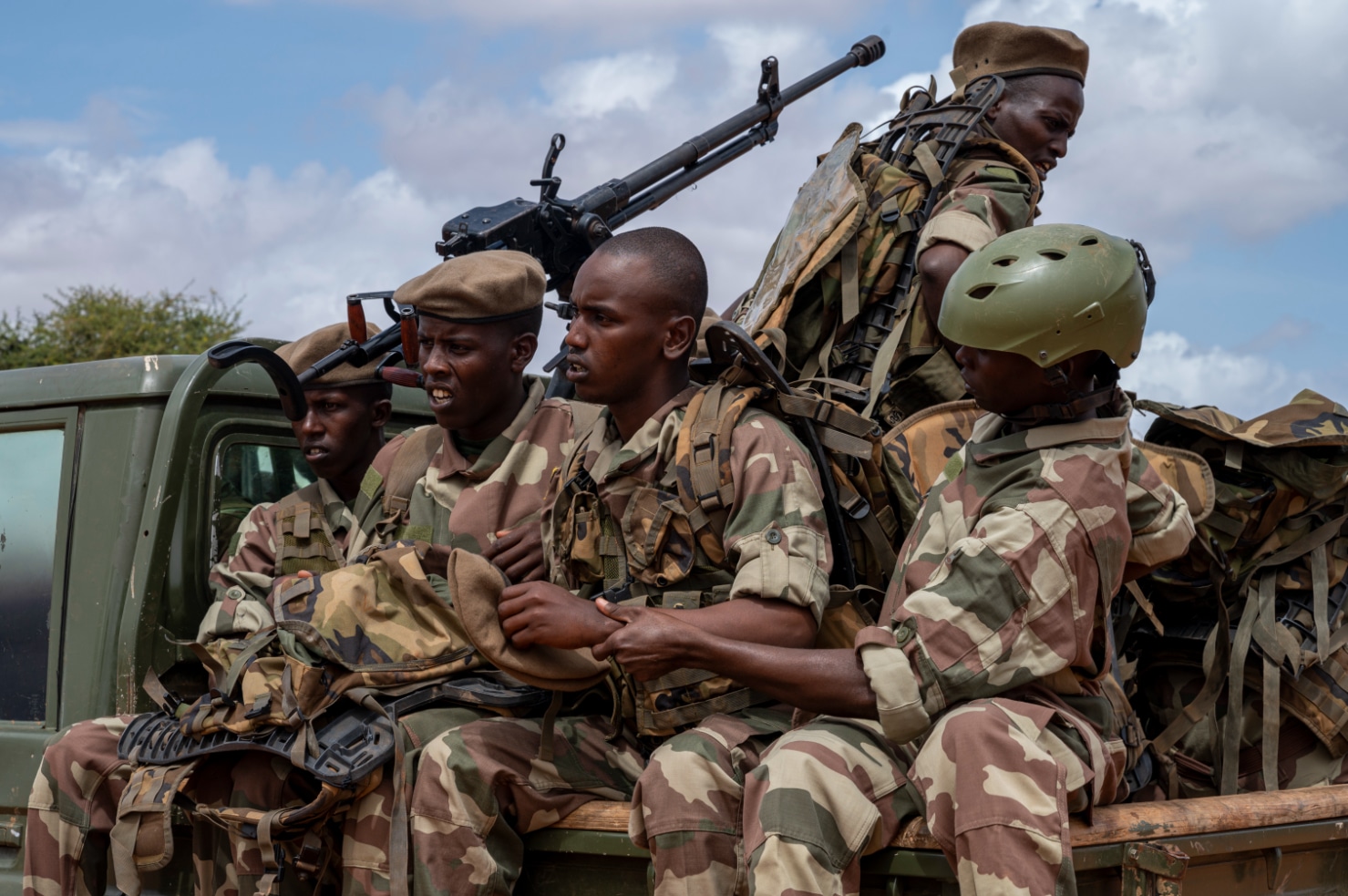U.S. Africa Command (AFRICOM) Commander, Gen. Michael Langley, expressed confidence that Somalia can manage its own security following the scheduled withdrawal of the African Union Transitional Mission in Somalia (ATMIS) forces in December. During his visit to Mogadishu, Langley, alongside other U.S. officials, met with Somali President Hassan Sheikh Mohamud and military leaders to discuss ongoing security efforts and counterterrorism operations.
Langley emphasized that Somalia is making strides in its fight against al-Shabaab and building its military capabilities. He credited the Somali National Army’s progress and noted the U.S. military’s continued commitment to training, advising, and equipping Somali forces to maintain stability. Langley praised the coordination between U.S. forces, Somali authorities, and international partners in tackling terrorism threats and advancing political stability in the region.
On Thursday, #ATMIS #BNDF troops stationed at Jowhar HQs led by Capt. Niyuhire Bonne Annee, conducted a joint patrol with Somali Security Forces (DANAB) from the Middle Shabelle region.
The operation in Call Dheer village, near Jowhar Airfield, included reconnaissance, cordon, &… pic.twitter.com/pLapUXX8vE
— ATMIS (@ATMIS_Somalia) September 13, 2024
Somalia has faced significant challenges in maintaining security after decades of insurgency by the al-Shabaab militant group. The U.S. role has been crucial in providing military support, including drone strikes and special operations, to weaken the group. As Somalia prepares for the ATMIS forces’ exit, U.S. officials stress the importance of Somali-led defense efforts in sustaining long-term security and stability.
In addition to discussing military matters, U.S. Ambassador to Somalia Richard Riley emphasized the ongoing diplomatic efforts aimed at resolving disputes between Somalia and neighboring Ethiopia, which have strained regional relations.
Expanded Coverage:






